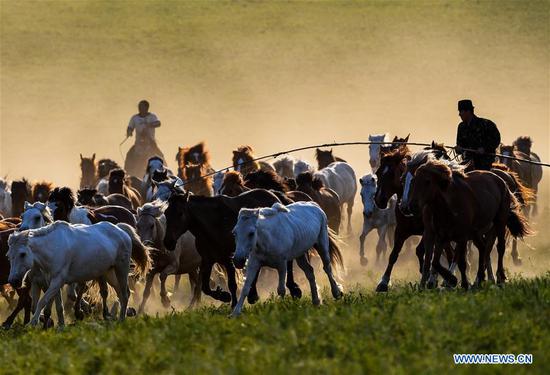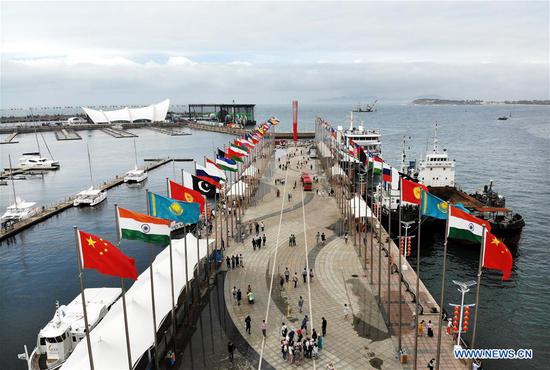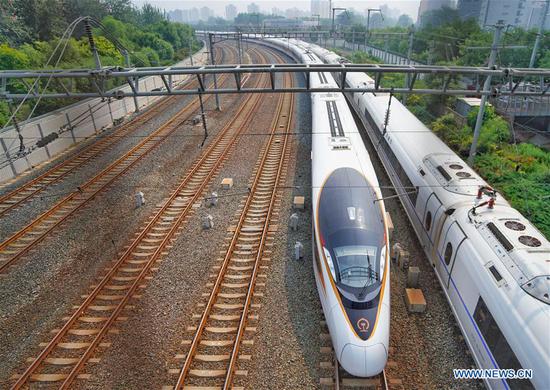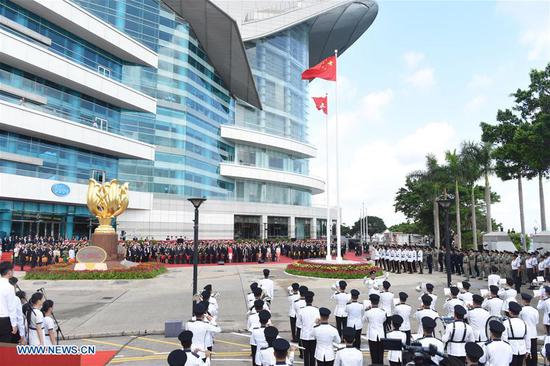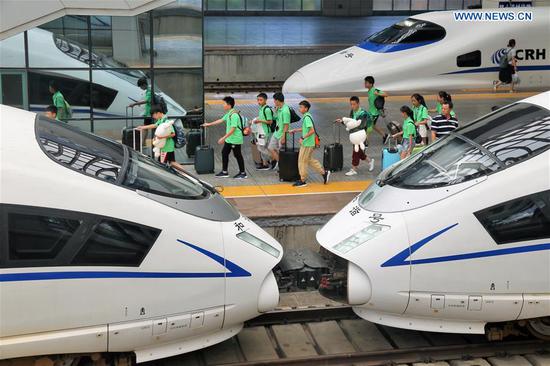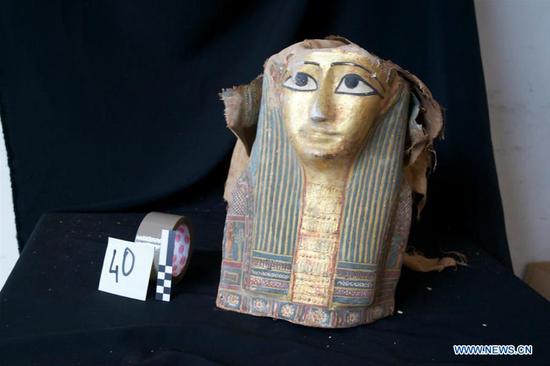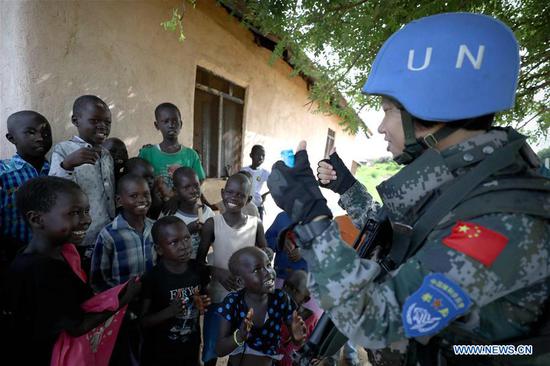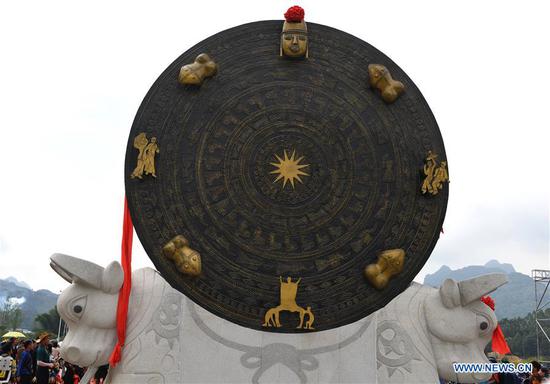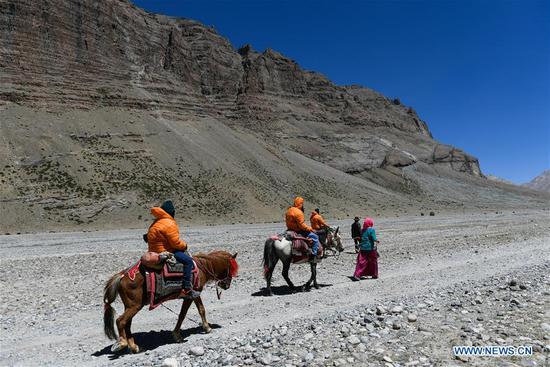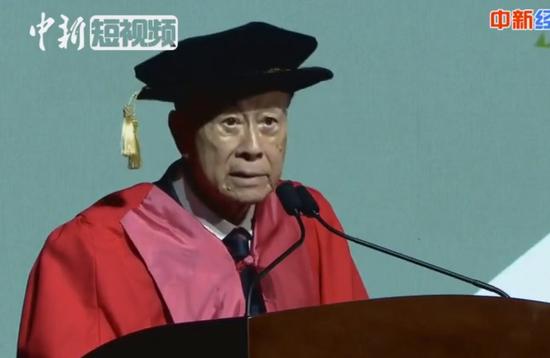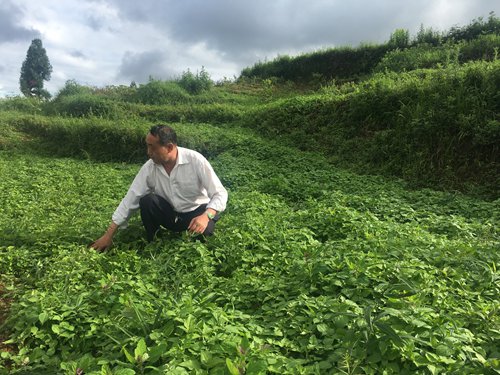
Meng Tingzhuang, a customer manager of the Panzhou branch of the Agricultural Bank of China, inspects polygonatum planted by farmers in Panzhou, Southwest China's Guizhou Province on Tuesday. (Photo: Ma Jingjing/GT)
In April 2017, the government of Southwest China's Guizhou Province vowed to fully implement three key strategies: Great Poverty Alleviation, Big Data and Large Ecology. What positive results have been attained in the province thanks to its poverty alleviation and hi-tech efforts? Villagers told the Global Times how industrial poverty reduction, including tourism and cattle-raising, is helping them shake off poverty. Meanwhile, the Agricultural Bank of China is providing preferential loans for the relief projects and has created a white list based on big data to improve efficiency and loan coverage in rural areas.
Panzhou, a county in Southwest China's Guizhou Province, is among China's top 100 counties in terms of social and economic development, but it is also considered a national-level poverty-stricken county. On highways and streets in Panzhou, eye-catching slogans calling for poverty alleviation can be frequently seen.
What significant changes have been made to help impoverished families in the region? In a small mountain village called Daditou, just a one-hour drive away from downtown Panzhou, villagers are eager to tell their stories.
At a specialized farming cooperative on a remote mountain as high as 1,600 meters, several workers are busy processing cow dung for biogas digesters.
One of the oldest workers on the farm who is feeding cattle puts down the forage and speaks to the Global Times. Fifty-five-year-old Chen Gongjing, who started working at the cooperative in February this year, was born into a poor family.
"Before working here, I used to plant corn and do hard labor in the city. But as I'm old now and have a low literacy level, no company is willing to hire me anymore," Chen told the Global Times.
According to Chen, he can earn more than 40,000 yuan ($6,048) a year now, compared with a little more than 20,000 yuan before.
"I am paid 3,000 yuan per month. My cropland has been leased to the cooperative for more than 7,000 yuan a year," he said.
In fact, this cooperative is helping 34 families, including 17 extremely poor ones, to get out of poverty.
Xu Wenyong, head of the cooperative, told the Global Times that the community received a loan worth 3.4 million yuan in November 2017 - each family receiving 100,000 yuan - and bought 121 cattle in March.
"We plan to raise 1,000 cattle in the future, selling to other cities like Shenzhen in South China's Guangdong Province… We are also planting polugonatum - a kind of herbal medicine - walnut, pomegranate and peanut," Xu said.
Rural tourism
In Tuole, a village about 40 kilometers southwest of Panzhou, poverty alleviation work has been carried out by taking advantage of the area's unique natural resources - ginkgo.
There are more than 1,200 ancient ginkgoes in the village with an average age of above 300 years, and the most ancient is over 1,200 years old. Centered on ancient ginkgo, Panzhou Tuole Ginkgo Tourism Investment and Development Co began to develop a scenic spot in 2012.
The scenic spot opened to tourists in 2014 and hires around 100 workers, with 20 percent of them coming from families living under the national poverty line.
"Villagers used to make a living by selling ginkgo nut and laboring in cities, but with the opening of the scenic spot, some migrant workers have come back home and become engaged in the tourism sector," Duan Heng, manager of the company, told the Global Times on Tuesday.
Wang Guocui, a tourist guide who works in the scenic spot, told the Global Times on Tuesday that she has worked here for three years since she graduated from university.
Wang said that she and her husband both work in the scenic spot and can earn between 6,000 and 7,000 yuan per month, adding that her husband's side of the family used to be very poor.
The scenic spot welcomed over 300,000 visitors in 2017, and 10 percent of ticket receipts are given to villagers, which is calculated by how many ginkgoes they own, according to Duan.
"Many villagers wish to be engaged in rural tourism, but have no idea how to," Duan said, noting that the company is guiding villagers to offer accommodation and catering services to tourists, while purchasing ginkgo nut from villagers.
Adoption of big data
To help drive poverty alleviation in the local area, both projects received loans from the Agricultural Bank of China (ABC).
Wang Meng, an ABC staff member, told the Global Times that when he started to do poverty alleviation-related business in 2014, many poverty-stricken families were reluctant to or didn't dare get loans out of fear they wouldn't be able to repay them.
"But with the driving effect of the government's war on poverty, now most farmers wish to get loans and shake off poverty," Wang said.
But the approval and provision process of loans for farmers, especially in remote areas, needs improving. As such, advanced technologies, namely big data and blockchain, are now helping commercial banks overcome such obstacles.
"Traditionally, if farmers wanted to apply for loans, our customer managers had to go to villages to collect relevant information and then pass it on to different levels for approval," said Jiang Liping, general manager of the Rural Household Financing Department of the Guizhou Branch of ABC.
The adoption of big data brings convenience while providing wide coverage, Jiang told the Global Times on Thursday.
And ABC's "E Loan for Tobacco Growers" is pioneering in this area. Based on data about farmers' tobacco-planting areas and on revenue provided by tobacco companies, ABC created a white list of who the bank can provide loans to, which was followed by offline evaluations. After approval, farmers can receive their loans promptly, according to Jiang.
Since the technology was put into use at the beginning of 2017, 17,000 farmers in Guizhou have been put on the white list, with the bank already providing a credit facility at 410 million yuan, data from ABC showed.
Also, the bank is adopting blockchain to help farmers mortgage their contracted land use rights and housing property rights.
With this technology, information about these two rights areas can be shared by the government, the People's Bank of China, the department of housing and urban-rural development as well as the bank that handles the loans, Jiang said, noting this will save time when providing loans to farmers.












